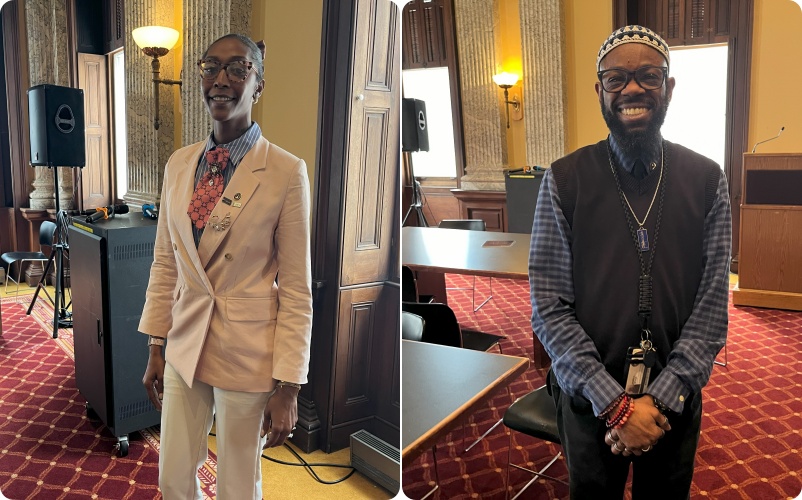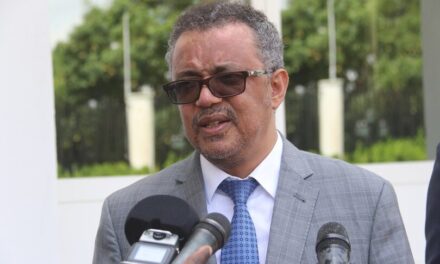By Megan Sayles
AFRO Staff Writer
msayles@afro.com
Each year, March 31 marks Transgender Day of Visibility, a time to celebrate members of the transgender community and to call attention to the violence and discrimination they continue to face. This year, the observation comes under a presidential administration that has signed executive orders attacking the rights of transgender, non-binary and intersex people.
Though some states, like Maryland, have taken measures to ensure the protection of the transgender community, advocates say it’s crucial to raise awareness about the experiences of the transgender people.
“Trans Day of Visibility is a day that we utilize to make trans people more visible throughout the United States and across the world,” said Alexis Blackmon, interim director for the Baltimore Mayor’s Office of LGBTQ Affairs. “It sheds light on who we are and our contributions to society, allows trans people to know that it’s okay to be visible and shows them the importance of being visible for younger generations.”

In 2023, the Williams Institute at the University of California, Los Angeles’s (UCLA) School of Law found that 81 percent of transgender adults in the U.S. have contemplated suicide and 42 percent have attempted it. Researchers explained that this stems from the erasure and denial of transgender people’s identity and a growing number of politically-motivated assaults against the transgender community.
With executive actions, the 47th president has sought to ban gender-affirming care for young people, prohibit transgender people from joining the military, bar transgender women from participating in women’s sports and forbid public schools from acknowledging transgender and non-binary people.
Blackmon, a transgender person herself, said people in her community are afraid that the government will try to uncover or expose their identities by accessing their medical records or birth certificates.
“A lot of the fear comes from not knowing what’s going to happen,” said Blackmon. “A lot of people are under the impression that trans people are going to be rounded up and put into concentration camps.”
“People are scared to use the bathrooms of which they were assigned at birth, as well as bathrooms they would choose to use. It’s a double edged sword. If a trans woman who completely looks like a cisgender woman goes into a male restroom, she could possibly be raped or beat because people will say they shouldn’t be this way,” she continued.
Blackmon explained that some of the pervasive stereotypes surrounding transgender people include that they are predatory, do not work proper jobs or are uneducated.
Her office is responsible for delivering cultural competency training to public safety officials. Blackmon decided to expand this to all Baltimore City government employees. She is also in the process of designing a workforce development program called, “PRIDE Opps,” which stands for Preparing Residents Internally for Diverse Employment Opportunities.
“I’m trying to raise as much money as possible so that we can have specific programming because the federal government is not going to allow any federal money to go to transgender programming,” said Blackmon. “I believe we need to throw some fundraisers so we can become self-sustainable.”

Brother Merrick Moses, intimate partner violence prevention coordinator for the Baltimore Mayor’s Office of Neighborhood Safety and Engagement, contended that transgender rights are a human rights issue. Moses, a transgender person himself, said his community is under an unprecedented attack by one of “the most outrageously evil presidents we’ve had in the history of this country.”
Moses advised transgender people to engage in self-care during this challenging time. He noted that members of the Black transgender community are no stranger to attacks on their identities and rights considering the legacy of slavery and segregation.
“We’ve been through these rough times before. We must endow ourselves with ancestral resistance to persevere in this era,” said Moses. “I believe we are going to win.”
Maryland Governor Wes Moore also issued a statement to acknowledge Trans Day of Visibility on March 31, denouncing the 47th president’s targeting of transgender people. He also reaffirmed Maryland’s promise to safeguard the vulnerable community.
“What we are seeing out of this White House against the trans community is not just heinous— it is the latest chapter in a long playbook of demonizing specific groups for political gain,” wrote Moore in a Facebook post. “On Transgender Day of Visibility, and every day, Maryland is committed to continuing to be a safe haven for our trans community.”
The post Transgender Day of Visibility highlights struggles and resilience amid anti-trans legislation appeared first on AFRO American Newspapers.










